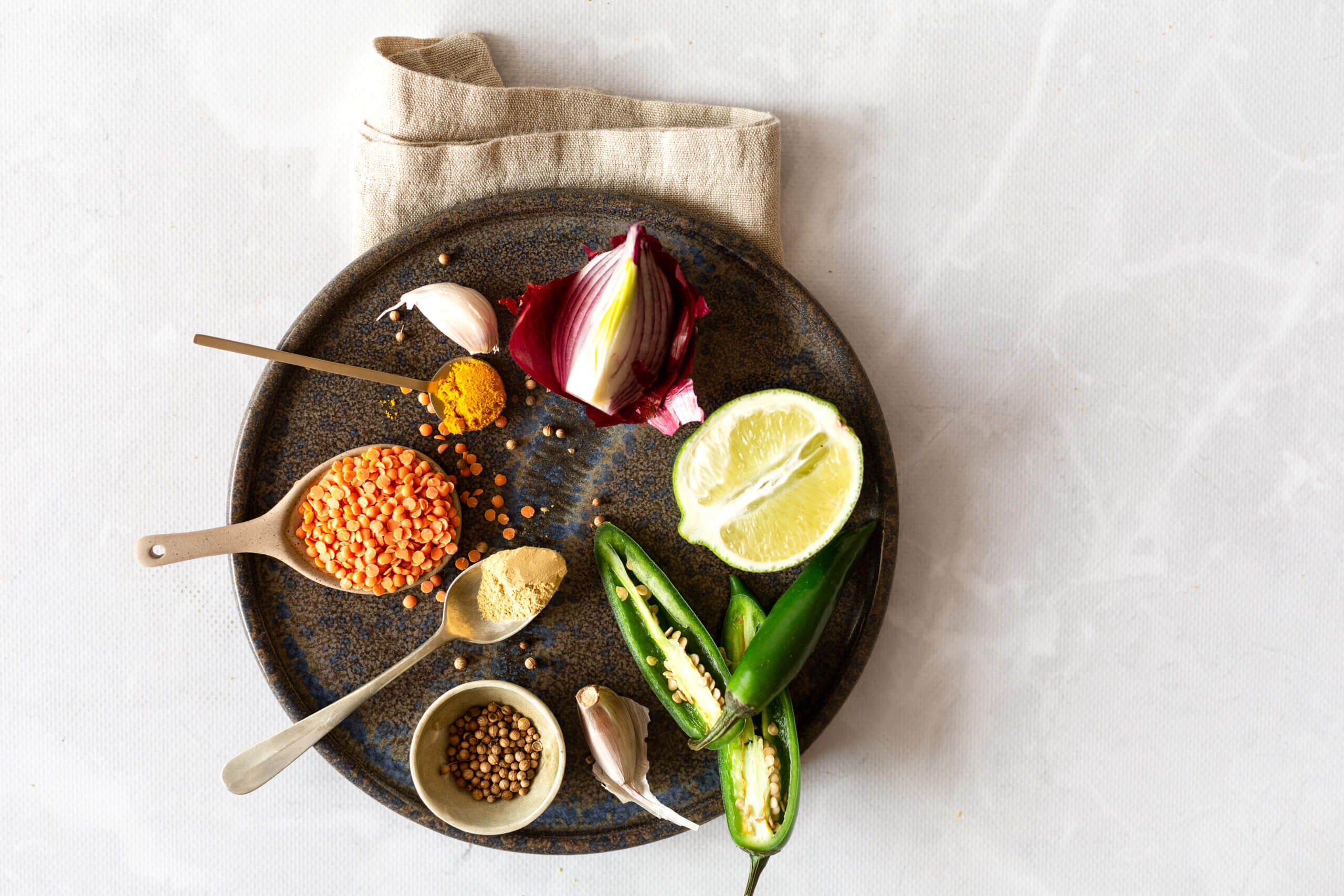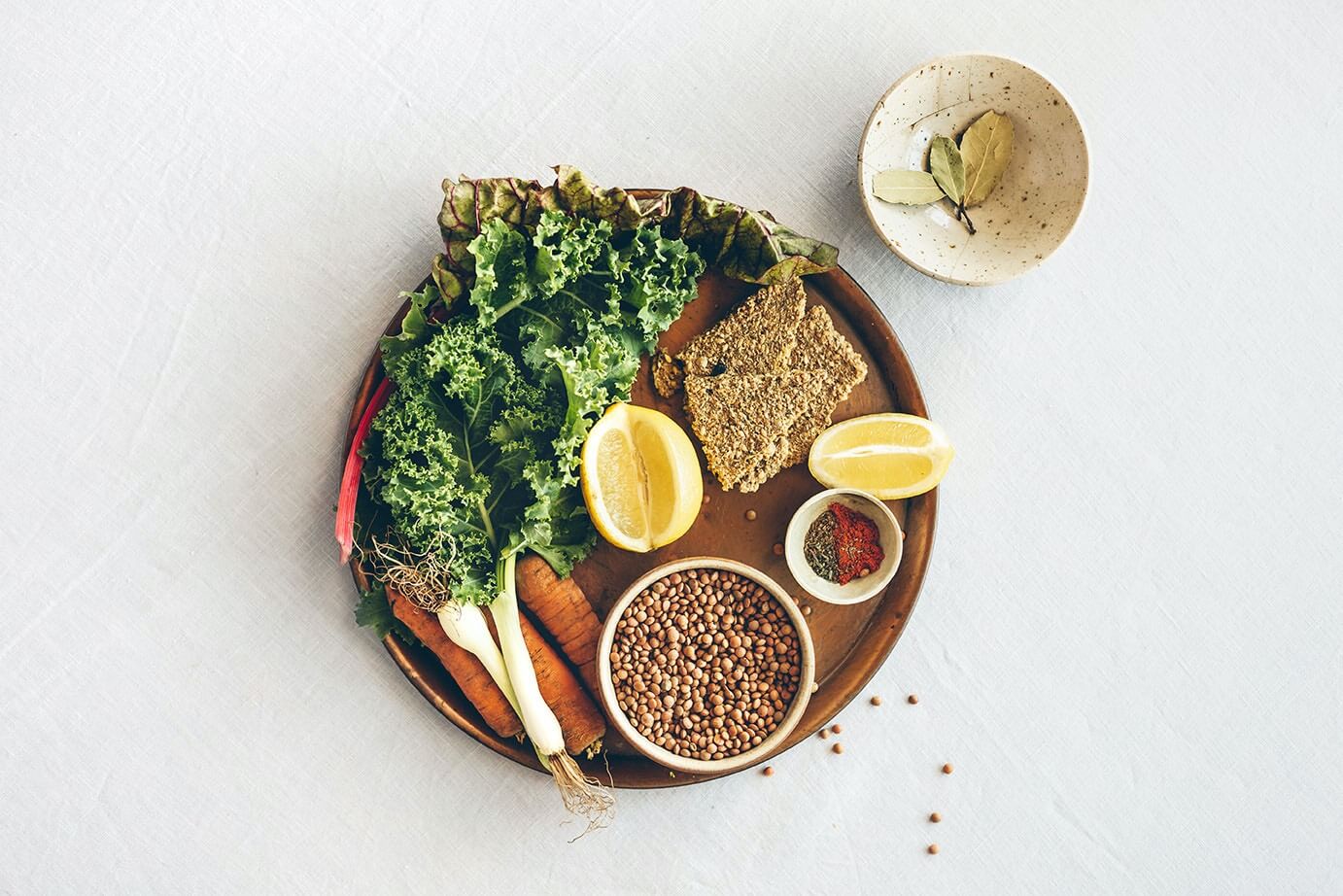30 Jan 2023
What is an Ayurveda Diet?
What is Ayurveda?
Ayurveda, meaning the science or knowledge of life in Sanskrit, is a traditional system of medicine that originated in India. Experts believe its roots date back over 3,000 years, making it one of the world’s oldest healthcare systems.(1) It still has a strong following today, with a 2017 survey finding that 77% of Indian households use Ayurvedic products.(2)
This popularity has spread around the globe. For instance, in 2018 the National Center for Complementary and Integrative Health estimated that 240,000 American adults used Ayurvedic medicine.(3)
Ayurveda is a holistic system, and believes that our health relies on a balance between mind, body, spirit and environment. One of its tenets is that the universe and everything in it – including us – is made up of five elements. These are water, earth, fire, air, and space or aether. They combine with each other to form the three humours, or doshas, known as vata, kapha and pitta.(4)
According to Ayurveda, we each possess a unique ratio of these doshas. This forms your prakriti, or constitution. As well as influencing our personality, doshas are responsible for our overall wellness. Any imbalance may lead to health problems.
Although Ayurveda does incorporate curative measures, it mostly focuses on preventative care. In other words, the aim is to maintain wellbeing and avoid disease in the first place. In addition to medicines, Ayurveda involves therapies such as yoga, massage, and meditation.
Then, of course, there’s diet. Ayurveda rightly believes that the food we eat has a significant impact on our health. Unlike the common western notion of ‘diet’, an Ayurvedic diet doesn’t focus on weight loss. Instead, it aims to balance the different types of energy within the body in order to stay healthy.

What is an Ayurveda diet?
An Ayurvedic diet is one facet of the broader Ayurveda system. It sets out guidelines on the types of foods you should eat based on your dominant dosha, or energy type. The idea is that this will enable you to achieve inner balance between all three doshas and maintain good health.
So, what is Ayurveda diet mentality? Unlike many fad diets, it doesn’t dictate a strict meal plan that everyone must follow. Instead, it makes suggestions about what foods are right (and wrong) for you personally. Therefore, the first step to take is figuring out your individual constitution.
Ayurveda believes that while everybody has features of all three doshas, most people have one or two dominant ones. This is a fixed ratio that we cannot change. It affects your physical build and personality, as well as your ideal diet.

Determining your dominant dosha
One way to discover your dominant dosha is to visit an experienced Ayurveda practitioner. However, it’s also possible to work it out for yourself based on descriptions of each one. So, take a look at the following and see which you think matches you most closely.(5) Remember that it could be a combination of more than one.
Vata
This dosha consists of the air and space elements. People with a dominant vata dosha tend to be creative, flexible, lively, and intelligent. They are also easily distracted, prone to anxiety, and experience changeable moods. Physically, vatas usually have a slim build, and may suffer from fatigue and digestive issues.
Kapha
This dosha consists of the earth and water elements. People with a dominant kapha dosha tend to be calm, loyal, patient, and caring. They are also fond of routine, prone to depression, and may struggle with motivation. Physically, kaphas often have a sturdier build, and may suffer from weight gain and sluggishness.
Pitta
This dosha consists of the fire and water elements. People with a dominant pitta dosha tend to be intelligent, hard-working, confident, and strong-willed. They are also impatient, competitive, and prone to conflict. Physically, pittas commonly have a medium, muscular build, and may suffer from inflammation and high blood pressure.

Dishes for your doshas
Once you’ve determined which is your dominant dosha, you can use the Ayurveda diet guidelines to create an eating plan. You might think this involves consuming foods which are linked with your main dosha. However, according to Ayurveda, you need to tuck into foods from your non-dominant doshas to achieve internal balance. Here's how that looks:
Vata
If you have a dominant vata dosha, Ayurveda recommends that you eat warm, soft, and grounding foods. This includes rice, cooked vegetables, soups, and pulses. Conversely, you should avoid raw vegetables, sour fruit, white bread, and bitter herbs.
Kapha
If you have a dominant kapha dosha, Ayurveda recommends that you eat spicy, astringent and pungent foods. This includes raw vegetables, fibrous fruits, and pulses. Conversely, you should avoid fried food, salty food, sweet and sour fruit, refined cereals, yoghurt, and nuts.
Pitta
If you have a dominant pitta dosha, Ayurveda recommends that you eat cold, light, sweet, and energising foods. This includes rice, salads, legumes, and plenty of vegetables. Conversely, you should avoid spicy food, sour fruit, and cheese.
Of course, these are just a few suggestions, and you should follow them mindful of any allergies or intolerances you have. The Journal of Ethnic Foods has an article which features a more comprehensive list. And if you’re looking for some inspiration, we’ve got lots of delicious Ayurvedic recipes to nourish your doshas!

General Ayurveda diet principles
In addition to advice on foods to suit your dosha, Ayurveda offers some universal diet principles for everyone to follow.
As an example, a traditional Ayurveda diet will vary according to the season as well as your dosha. That means eating cooler foods in the summer and warmer foods in the winter to balance out the weather and temperature.
One interesting concept associated with the Ayurveda diet is that food can influence our behaviour. In line with this, it divides foods into three broad categories depending on the qualities they evoke in people.(6) For instance, cooked vegetables, fresh fruit, milk, and honey bring out our wisdom. On the other hand, meat, alcohol, spicy foods, and sour foods bring out the worst side of people. Naturally, therefore, we should aim to eat those foods that encourage us to be our best.
Lastly, Ayurveda diet principles assert that certain types of food simply don’t go together. Eating them at the same time can cause problems for your digestive system, such as bloating or indigestion. The list of specific combinations to avoid is quite long. However, the general advice is not to mix foods that clash in terms of taste, heating or cooling energy, or their effect on your digestion.



